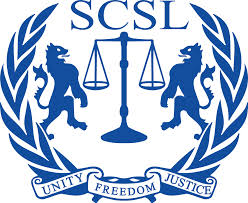At the end of Wednesday’s proceedings, Charles Taylor was allowed to make a statement. “I’m very appreciative of the handling of the proceedings so far, and I have the belief that the right thing will be done by the grace of Almighty God,” he told the Judges.
This week’s hearing is the last in the Taylor case before the appeal judgement is delivered. It also marks the achievement of an important milestone as the Court nears the completion of its mandate. The Judges will now retire to deliberate and consider their judgement, expected before the end of 2013.
i. Whether the Trial Chamber correctly articulated the actus reus elements of aiding and abetting liability under customary international law. The differences and similarities between aiding and abetting, instigating and ordering as forms of liability under Article 6(1) of the Statute. Whether customary international law recognizes that certain forms of liability set forth in Article 6(1) of the Statute are more or less serious than other forms of liability for sentencing or other purposes.
ii. Whether the Trial Chamber’s findings meet the mens rea standard of purpose.
iii. Whether acts of assistance not “specifically directed” to the perpetration of a crime can substantially contribute to the commission of a crime for aiding and abetting liability. Whether the Trial Chamber’s findings meet the “specific direction” standard.
iv. Whether the acts of assistance not to the crime “as such” can substantially contribute to the commission of the crime for aiding and abetting liability. Whether the Trial Chamber’s findings meet the “as such” standard.
v. Whether the sources of law identified in Rule 76 bis (ii) and (iii) establish that uncorroborated hearsay cannot be relied upon as the sole basis for specific incriminating findings of fact.
vi. How the Appeals Chamber should apply existing jurisprudence relating to adjudicated facts under Rule 94(B) in the context of a defence motion for the admission of adjudicated facts following the close of the prosecution case.
